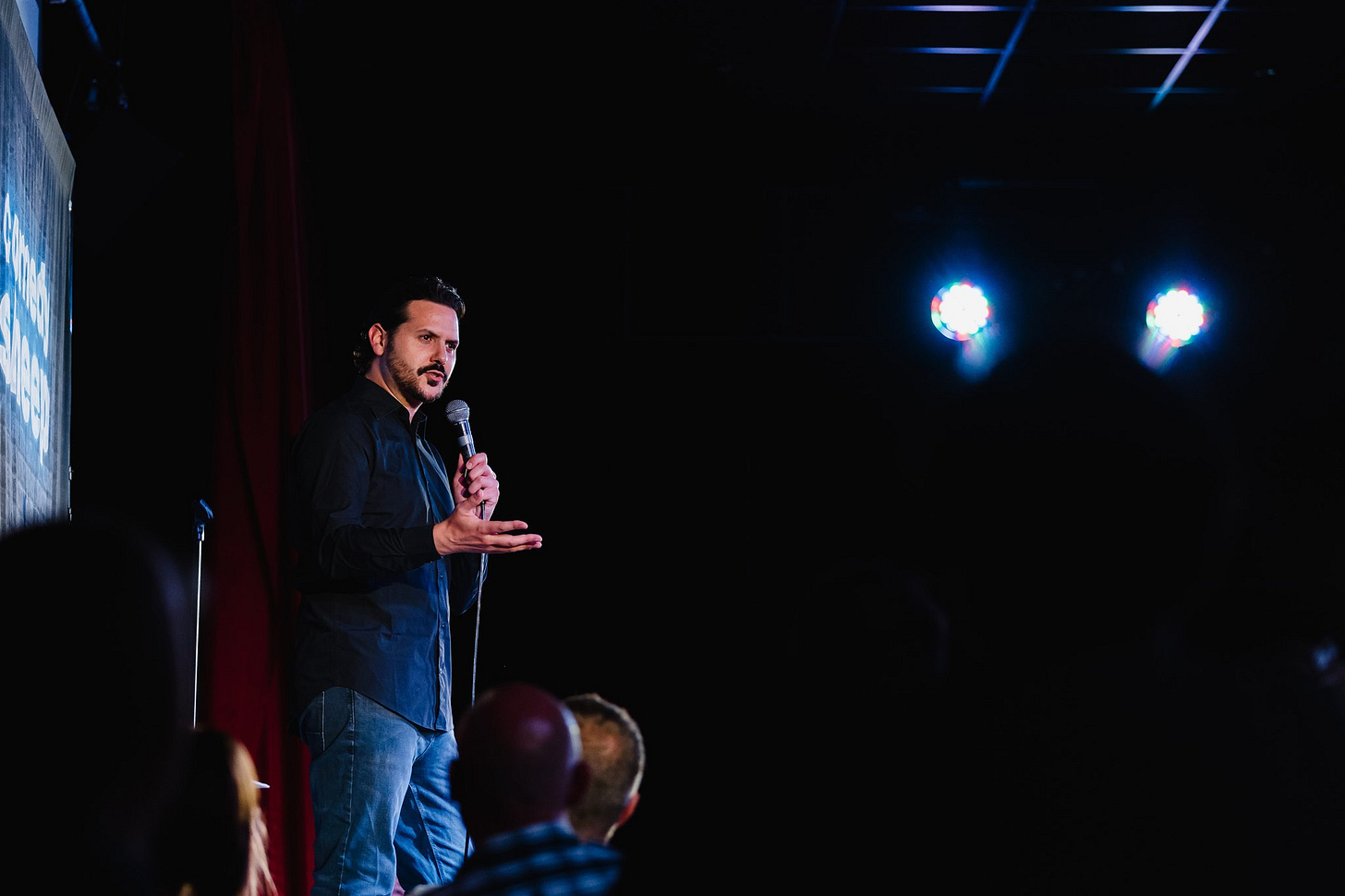The Fringe venues putting more money in the pockets of new comedians
Prefer your laughs from performers who aren't risking bankruptcy? Try these Festival spots
When Joz Norris did his first Fringe show in 2013, he went to a Free Fringe venue, and made a tiny profit. When he went to Underbelly, he made enough to cover his costs. He says that wouldn’t be possible for new comedians now. “That was in a time when it was possible to do the Fringe for not much money and without a huge amount of mental load,” he says.
Ignacio Lopez also started at Free Fringe and then moved to Just the Tonic, where things went relatively well - until he over-estimated his audience and booked a 180-seat venue. “That was a steep learning curve,” he says.
Barry Ferns received excellent reviews for his first show at an independent pub venue, but lost £5000. The next year he got excellent reviews again, landed a venue at the Gilded Balloon, worked as a cleaner throughout the Fringe and still lost £7000. He continued to receive high praise, get big name venues, and then haemorrhage money until eventually he was declared bankrupt and became homeless.
All of these comedians, now with well-established careers, say that making money at the Fringe is never guaranteed. “(You) can potentially make money at the Fringe, but if that's your only goal, then do something else. If your goal is to make money, be a flyerer (rather than a comedian),” says Lopez.
The costs of running Fringe shows across the board has sky-rocketed; accommodation is expensive if not extortionate; posters and billboards are getting larger and more expensive in what Norris calls an “arms race” of publicity; venues are under pressure from rising bills; and punters have ever less disposable income for tickets. To many people, the Fringe has lost its grassroots heart, and the commercialised Fringe model of big production companies from outside Edinburgh running shiny, slick and expensive venues is creaking under its own weight.
“I don’t think there’s many individuals who are acting really cynically at these Fringe venues, I just think it’s the way things have always gone and people don’t know how to change,” says Ferns about the large traditional Fringe venues.
Since recovering from his financial crisis, Ferns has founded the hugely successful Angel Comedy Club in Islington. While comedians are often expected to make a name for themselves on unpaid open mic slots, or to take on a lot of financial risk with their paid gigs, Angel Comedy Club pays all of their performers. They offer pay what you can tickets and regular free shows as well. Ferns also runs a free comedy workshop each week, and keeps the venue open as an informal coworking space for comedians. The venue has been a huge success, attracting huge comedy names, such as Ivo Graham, John Kearns and Celya AB, all while offering the first paid slots for hundreds of new comedians.
“I think for years now, people have been saying it needs to change, and it’s finally changing,” says Ferns, reflecting on the new offering of venues in Edinburgh too. The owners of the new and highly-praised venue Monkey Barrel came to Ferns for advice before establishing their Edinburgh comedy club. This year Hoots, a new venue run by comedian and Edinburgh resident Rick Molland will be running dozens of shows. The high-cost low-reward model, which is currently punishing comedians with high financial risks, and audiences with high ticket prices, might be shifting. This new breed of venues is giving us more options for Fringe tickets, ones where we know our money is actually going to the comedians we are watching.
What’s so wrong with the status quo?
In the traditional Fringe model, used by the large multi-venue organisers like Underbelly, Assembly, Pleasance and Gilded Balloon, performers don’t pay an up-front venue hire. Instead, the venue takes around 40% of all box office takings. That doesn’t mean zero up front costs though. Venues charge a venue deposit, a flat £600 fee which goes towards the marketing of their overall programme (they are quick to clarify that performers are expected to also do their own marketing). There are also up front costs for any equipment or staff needed beyond the basic sound and lighting set up, and it isn’t always straightforward for performers to keep track of the bill they are racking up. “You can be left still owing money at the end of a run… because you've been paying for a tech every day that you didn't know about,” says Lopez. Ferns remembers the “crushing” feeling of seeing his bill from Underbelly, and realising he had been renting equipment every single show of the month, without realising it.






